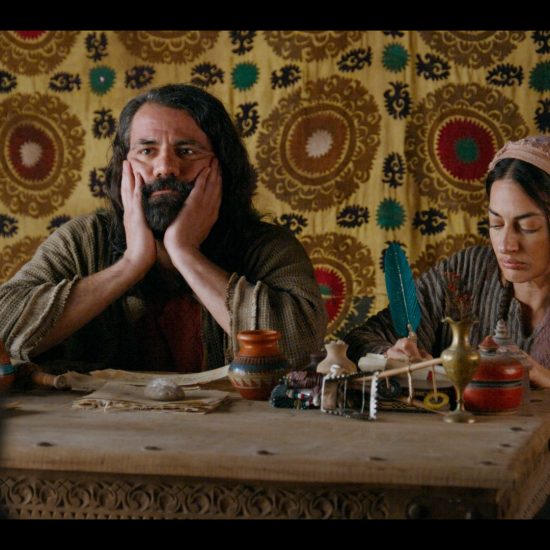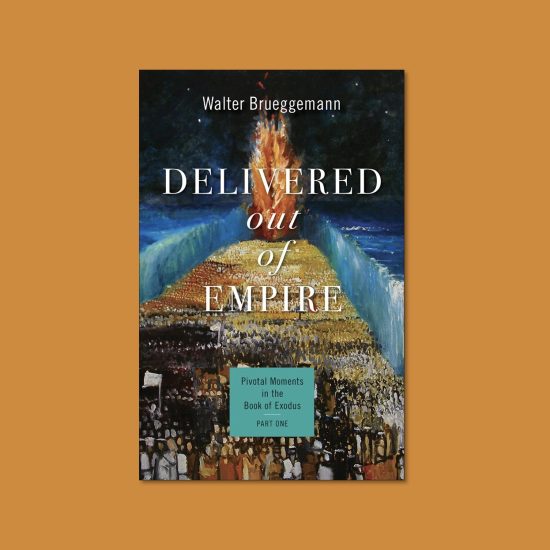 The Giving of the Law
The Giving of the Law
Formations: February 3, 2019
Scripture: Exodus 19:1, 9-10, 16-25

Michael K Olmsted
History focuses on the tragedies and heroic events of people as they struggle against armies, vanquish ruthless oppressors and build empires. The story of Israel is not shaped by military and political success, but by the steadfast love of God and his grace. Exodus tells the story of a people who would have disappeared in the Nile delta except for God’s purpose. We thrill to the account of the plagues God visited on the Egyptian slave masters (Exodus 3-11). There is the unforgettable story of Israel crossing the Red Sea as God parted the waters before them and then drowned Pharaoh’s pursuing army as the sea closed over them (chs. 13-14). There are stories of God’s provision for Israel as they wandered in the uncharted wilderness, feeding them with quail and manna from heaven and water from a rock (chs.16-17).
Today’s text presents the future for those dazed people who are still struggling to live free of the familiar confinements of Egypt and uncertainty about the future. Israel is about to see God in a new way. God, who is nothing like the idols of the world. They would need to see life through new eyes and learn how to live with freedom and integrity as God’s people. This is the prelude to the issuing of God’s Law and their responsibility to live by that code of ethics.
Our story is dated in “the third new moon after the Israelites had gone out of the land of Egypt … into the wilderness of Sinai” (v. 14). They have been wandering a month and a half and already the people are complaining about the lack of water and food (16:1-21) A critical spiritual juncture has been reached as they come to Mt, Sinai (v. 17). The mountain is obscured by a mantle of smoke because “the Lord had descended upon it in fire; the smoke went up like the smoke of kiln, while the whole mountain shook violently” (v. 18). God explains he will speak to Moses so the people will hear his voice and trust Moses forever (v. 9). God’s voice is wrapped in thunder and God warns that the people must not come too close in their eagerness to see God. Even the priests must purify and prepare themselves or “the Lord will break out against them” (vv. 21-22).
There is a similarity here between the top of Sinai, the tabernacle and the later Temple of Jerusalem. We cannot stand in the awesome presence of the Lord God Almighty, for his might and splendor surpass anything we can imagine. Moses carefully repeats those instructions, then brings Aaron back with him while the people wait below in awe (v. 24). God is allowing the people to hear his voice and witness that creation is subservient to him before God gives the people his life-shaping laws.
For the first time a people who have only known life as slaves will discover what it means to be loved by the only true God and how to live in the shelter of his grace. What they are hearing and seeing puts Egypt’s temples and religious rituals in the shadows. God’s transcendence is obvious in the storm on the mountain, smoke, fire and thunderous voice. But the immanence of God is clear as he speaks and reaches out to those wandering exiles. God is both “other” and “one with us,” which will be better understood in the coming of Jesus.
We are also reminded, with Moses’ position as God’s leader and spokesperson, that God uses us as his channel of love and hope in a lost world. If it were not for God’s choosing to reveal himself through human agents we would be lost in an unclear muddle of values and purpose with no real hope or worthy life goal. Egypt had a plethora of gods, clearly defined lines of social status, and immoral values. God reveals himself as compassionate, generous and moral, all characteristics that must be reflected in his people.
Next week we will focus on those ideas in the Ten Commandments. But before the rules, we must see the “rule giver” who is first our loving Father.
We may find events like the burning bush, parting of the Red Sea and thunder on Sinai as fascinating stories from a primitive world. But do not miss the progression of Israel’s complex history and the incredible patience, grace and blessings of God through the history of the world. Revelation is progressive. God continues to speak through his written word, but also through events and people. God cannot be confined to any religious organization, controlled by politicians, or limited by human activities. Just as God spoke to Israel that day at the foot of Sinai, so God continues to reach out to us through his love made tangible in Jesus Christ.
We face the injustices and difficulties of life every day. Like Israel at Sinai we can hear God speak, but we have to choose to listen and to pattern our living – not just on religious laws, but on the life, example and words of Jesus. Moses faced rejection and failure as he led Israel, but he kept on. There were no easy times. Life was perilous. The people were weak and rebellious. But God was faithful.
Love can be defined by what we like or social pressures. But the story of Israel’s pilgrimage reminds us that life can be fulfilling, blessed and guided by God when we choose to accept God’s love in Christ and seek the leading of God’s Spirit in our challenges and struggles.
God came to Israel in the midst of lightning and thunder on a mountain. He comes to us in the Jesus who embraced those in need and gave himself on a cross. The choice is always ours to believe and accept God’s love as Israel was learning that day long ago at Sinai.
Formations is a curriculum series from Smyth & Helwys Publishing, Inc. through NextSunday Resources.
The PDF download requires the free Acrobat Reader program. It can be downloaded and installed at https://get.adobe.com/reader (uncheck optional offers first).



